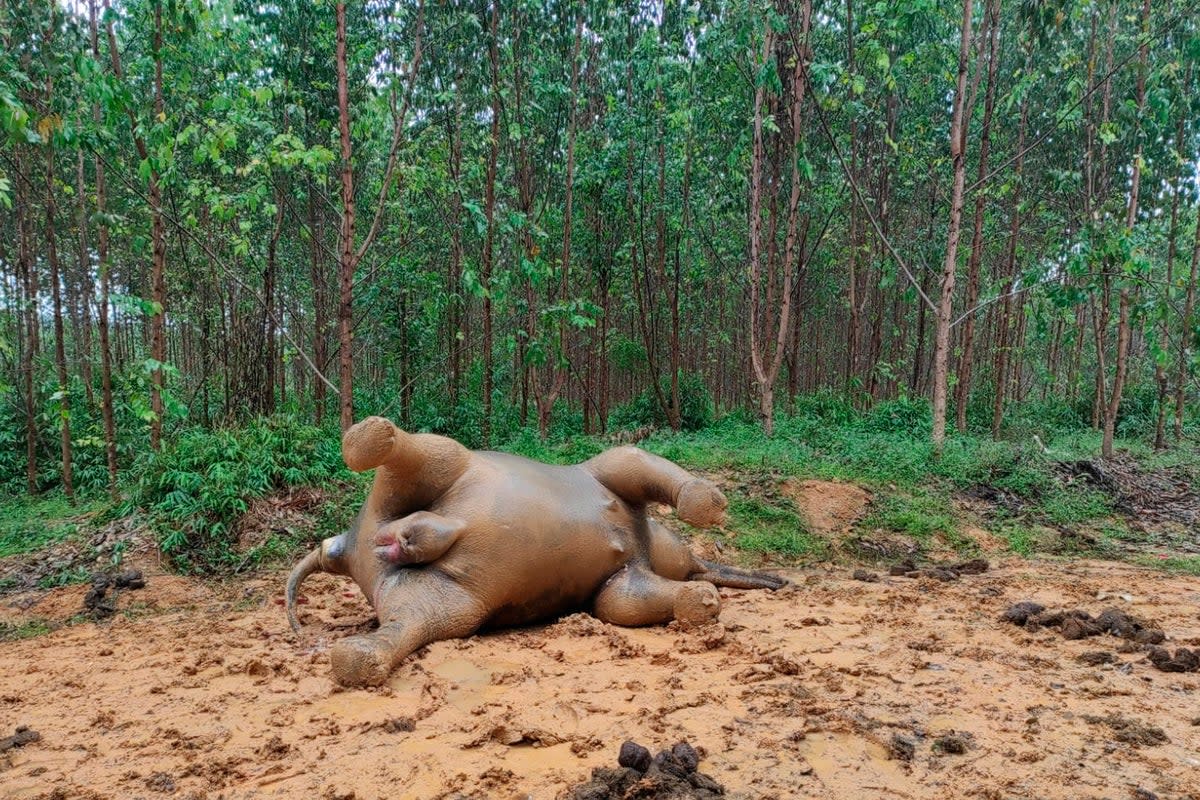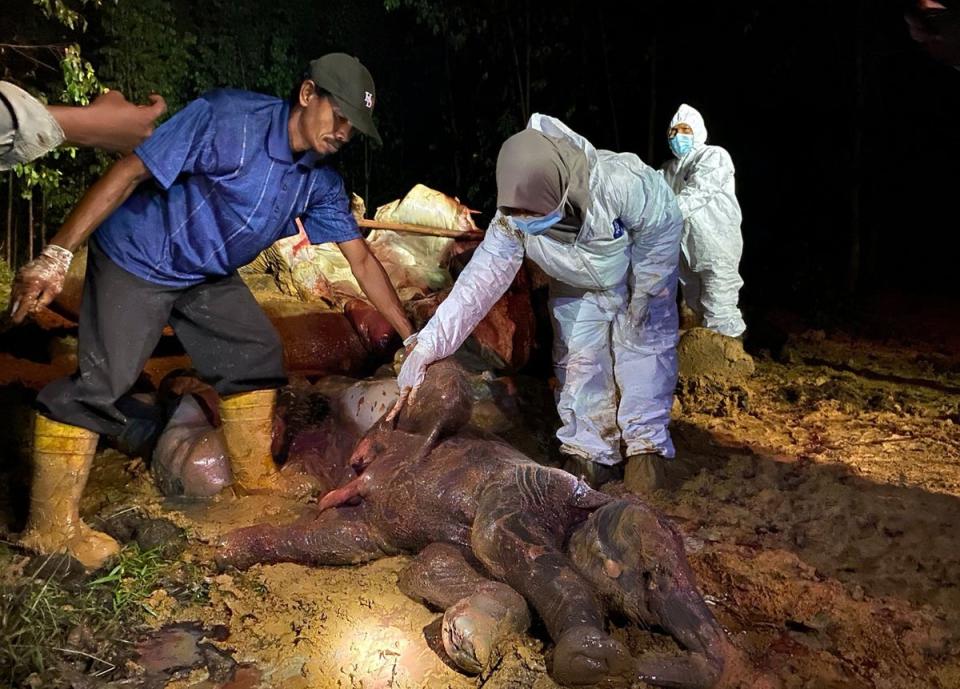Pregnant Sumatran elephant killed in suspected poisoning in Indonesia

A heavily pregnant Sumatran elephant was found dead of suspected poisoning in western Indonesia’s Sumatra island, officials said on Friday.
The animal was 25 years old and was about to give birth soon. It was found dead on the ground near a palm plantation in Riau province by local conservation groups on Wednesday.
Sumatran elephants are a critically endangered species. The southeast Asian nation, which is battling rising wildlife crime, aims to protect the species under an Indonesian law. But fewer than 700 Sumatran elephants remain on the island, which is home to some of the world’s rarest wildlife.
The pregnant animal was found bleeding from the mouth and anus with its internal organs having burn-like injuries.
Authorities strongly suspect that the animal died of poisoning.
“From the sign of changes in the shape of its internal organs, such as the lung, it looks like it is burning, black and oozing from the blood,” said Zulhusni Syukri, programme director of Rimba Satwa Foundation, one of the groups that found the elephant.
A pineapple was also found in the elephant’s stomach during the autopsy, raising further doubts of poisoning as the fruit is not locally grown in the area, Mr Syukri said.

The elephant, along with the unborn calf, was buried at the site after authorities took samples of its liver, intestinal wall, lungs and faeces for laboratory testing for the investigation.
The latest incident adds to the declining population of protected animals in the archipelago nation. The population of Sumatran elephants has shrunk from 1,300 in 2014 to 693 last year, down nearly 50 per cent in seven years, according to Indonesian forestry and environment ministry data.
The dramatic decline over the years has been attributed to animals’ increasing conflict with humans as there was a loss of more than 69 per cent of the animal’s potential habitat in the last 25 years — the equivalent of one generation.
Locals have been expanding palm plantations in the region, which has led to conflicts between humans and animals over space and resources.
“The palm plantation workers near the elephants’ roaming paths often have conflicts with the elephants because they eat the palm fruit,” Mr Syukri said.
He said at least seven Sumatran elephants have died in Riau province in the last three years.
In one of the most high-profile cases in 2019, a Sumatran elephant was found decapitated with its tusks chopped off. And last year, a Sumatran elephant calf died after it lost half of its trunk to a trap set by poachers.
Additional reporting by agencies


